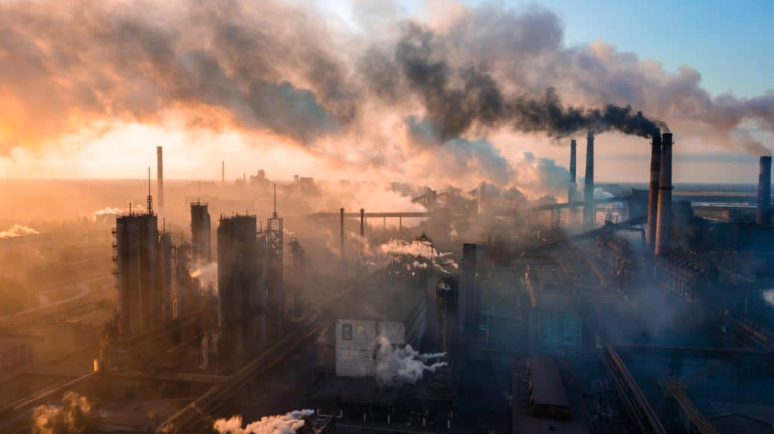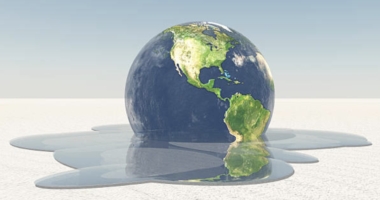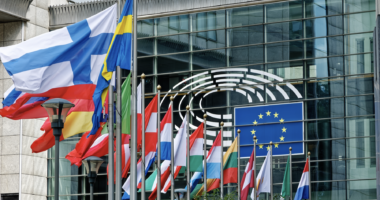Climate, Health and Equity Brief
“The most disastrous day in EPA history”
March 15, 2025

The Climate, Health & Equity Brief is GMMB’s take on the latest news on the current impacts of climate change. If you haven’t subscribed yet, you can do so by clicking here.
Hot Topic: No safeguards. As the Trump administration intensifies its assault on the planet, this week we’re focusing on a barrage of devastating decisions that weaken safeguards for environmental and human health. Leading the charge is the EPA, which is aggressively carrying out Mr. Trump’s pledge to slash regulations protecting air quality, water resources, and public health while loosening rules for the fossil fuel, manufacturing, and petrochemical industries.
In a stunning post on X on Wednesday, EPA Administrator Lee Zeldin declared that the agency—established in 1970 to protect human health and the environment—now has a new mission: to “lower the cost of buying a car, heating a home, and running a business.”
Yes, you read that correctly.
On the same day, the EPA rolled back or announced plans to curtail 31 environmental protections, many of which had been in place for decades. Among Zeldin’s most significant moves were proposals to strip the federal government of its role in regulating greenhouse gas emissions, weaken limits on pollution from tailpipes and smokestacks, revise air quality standards for soot and other particulate matter, rescind safeguards against chemical plant leaks, divert the focus of environmental enforcement away from energy companies, roll back wastewater regulations for coal and other power plants, loosen requirements that major industrial polluters report their greenhouse gas emissions to the EPA, and overturn the EPA’s 2009 finding that that carbon dioxide harms human health and welfare.
And that’s just the news out of one agency.
The White House also announced plans to produce a National Climate Assessment that presents planetary warming as economically beneficial, aligning with partisan ideology rather than scientific consensus. Defense Secretary Pete Hegseth is purging all climate change initiatives from the Pentagon, including those designed to enhance military readiness under conditions that are certain to impact bases, threaten troops and increase future regional conflicts. The administration is cutting 1,000 NOAA staff and considering closing key NOAA weather centers, threatening vital weather forecasting and climate monitoring. And the U.S. Coast Guard Academy is eliminating climate change terminology from its curriculum, raising concerns about cadets being adequately prepared for climate-related disasters.
The administration’s slash-and-burn strategy also extends beyond U.S. borders to threaten the health and climate resilience of people around the world. The U.S. has withdrawn from the UN’s climate damage fund, jeopardizing financial assistance for developing nations facing climate disasters. And the U.S. has stopped sharing air quality data from embassies and consulates, cutting off a crucial resource for scientists and public health experts tracking global air pollution trends.
It’s going to be a long four years.
Human Health
A new Yale survey found that 39% of Americans believe climate change harms their health at least “a moderate amount,” an eight-point increase in the past decade. (Inside Climate News)
A new analysis finds that in the U.S., allergy season has lengthened by an average of 20 days since 1970, and rising CO2 levels are trapping more pollen in the air, worsening allergy symptoms for millions of Americans. (Axios)
Planetary Health
Global leaders at the COP16 Biodiversity Summit reached a hard-fought agreement on a roadmap to raise billions for conservation but left key issues such as funding distribution unresolved, casting doubt on the 2030 target to halt nature’s decline. (The Guardian)
Southeast Asia’s coral reefs, which account for a third of the world’s total, are rapidly deteriorating due to rising ocean temperatures and increasing acidity, particularly in Vietnam, where a staggering 99% of reefs are now in distress. (AP News)
A new MIT study warns that rising greenhouse gas emissions are shrinking Earth’s upper atmosphere, reducing the natural removal of space debris and threatening to halve the number of satellites that can safely orbit in space by 2100. (MIT News)
A new report from the EU’s Copernicus Climate Change Service finds that global sea ice levels set a new record low in February, with Arctic and Antarctic ice levels plummeting due to soaring temperatures. (The Washington Post)
Equity
Environmental justice organizations that recently regained access to IRA funds now face a new Trump administration threat as federal probes, lawsuits, and funding freezes escalate in efforts to dismantle climate initiatives and scrutinize nonprofit activities. (Floodlight)
Scientists say the recent heat waves in Burkina Faso and Mali were at least five times more likely due to climate change, exposing more than 41 million people to extreme heat despite Africa contributing little to global emissions. (Climate Central)
A new study found that climate change dramatically increased the likelihood of South Sudan’s blistering heat wave this month, which shuttered schools for two weeks to protect students after dozens collapsed from heat stroke. (The New York Times)
Politics & Economy
Administration Watch:
- The EPA is advancing 31 deregulatory measures aimed at easing industry burdens while undermining environmental and public health safeguards. (AP News)
- The State Department has halted efforts to monitor global air quality levels, ending a program that had provided data about a significant global health risk. (The Washington Post)
- The Pentagon is purging its climate change initiatives, effectively removing climate science from its mission-readiness strategy. (POLITICO)
- The U.S. Coast Guard Academy has removed climate change and related terminology from its curriculum. (Inside Climate News)
- The FBI is moving to criminally charge major climate organizations that received Biden-era EPA grants, alleging potential fraud and conspiracy. (The New Republic)
- The Trump Administration is planning to lay off over 1,000 NOAA employees and cancel leases for two NOAA centers, one of which is pivotal for generating national weather forecasts. (AP News, Axios)
- EPA Administrator Lee Zeldin will “immediately eliminate” all agency offices and positions responsible for environmental justice and DEI initiatives. (CBS News)
- U.S. Energy Secretary Chris Wright aims to dismantle a regulation that allows the consideration of environmental, social, and governance (ESG) factors in retirement portfolios. (Grist)
- The Pipeline Hazardous Materials Safety Administration (PHMSA) will likely walk back proposed rules to protect the public from CO2 pipeline leaks. (Grist)
- The Justice Department dropped a lawsuit against a petrochemical plant in Louisiana accused of releasing unsafe levels of cancer-causing pollution. (The Washington Post)
- The Trump Administration withdrew the U.S. from the board of the U.N.’s climate damage fund, which assists poor and vulnerable nations with climate disasters. (Reuters)
- U.S. Secretary of Energy Chris Wright has encouraged African leaders to move forward with fossil fuel production, a significant shift in U.S. policy. (The New York Times)
- President Trump’s escalating trade war with Canada threatens to derail U.S. climate goals, destabilize the grid, and strain long-term energy relations between the two nations. (POLITICO)
- President Trump’s tariffs on Mexico, Canada, and the EU are expected to strongly impact U.S. oil, gas, and renewable energy markets. (Forbes)
A new study revealed that half of global carbon emissions in 2023 came from 36 fossil fuel companies. (The Guardian)
The carbon capture industry is cautiously optimistic about its prospects under the second Trump administration, with support from both sides of the aisle and the oil industry. (Cipher News)
A new analysis has found that 67 major U.S. companies have turned to “greenhushing” – keeping their positive climate actions out of the spotlight given the new political environment. (Insurance Journal)
The Supreme Court declined to block lawsuits filed by five Democratic states accusing oil and gas companies of deceiving the public about fossil fuels’ climate impacts, allowing the cases to move forward in state courts despite objections from Republican-led states. (CBS News)
Climate United, a nonprofit coalition of financial institutions, filed a lawsuit against the EPA and Citibank over Trump’s freeze of nearly $7 billion in climate funds, which have halted solar, EV, and energy-efficiency projects across the U.S. (The New York Times)
According to the French government, if France doesn’t adapt to the changing climate, the cost of climate disasters in the country could double through 2050, resulting in an estimated $155 billion in additional insurance costs. (Bloomberg)
Action
Despite federal funding cuts and economic uncertainty, climate philanthropists are stepping up to bridge the gap—at least in the short term—with donors doubling down on clean energy, environmental justice, and climate innovation in the face of political headwinds. (Heatmap)
While China is the world’s biggest greenhouse gas emitter, it dominates the world in renewable energy and has pledged to develop new offshore wind farms and accelerate the construction of energy bases to become carbon neutral by 2060. (Reuters, The Washington Post)
Life as We Know It
Excelsa coffee, a rare species from South Sudan that is resistant to extreme weather, could help revitalize local agriculture and give local farmers much-needed economic support. (AP News)
Hotter temperatures create stronger turbulence and make it harder for planes to take off, while severe weather is increasing travel cancellations and shifting the timing of tourist seasons, changing the face of global travel. (Forbes)
Kicker
Curious about the Trump administration’s progress implementing the tenets of Project 2025 across all issue areas? Stay up to date with the Project 2025 Tracker.
If anybody needed a clearer sign that this administration gives not a single damn for the people of the United States, this is it.”
– Matthew Tejada, former EPA official
The GMMB Climate, Health & Equity Brief would not be possible without the contributions of the larger GMMB team—Catherine Ahmad, Aaron Benavides, Stefana Hendronetto, Nikki Melamed, Sharde Olabanji, Kenzie Perrow and Marci Welford. Feedback on the Brief is welcome and encouraged and should be sent to [email protected].






